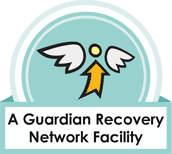A new study by the University of Buffalo Research Institute on Addictions (RIA) has discovered a key mechanism in how aerobic exercise can impact the brain, which could offer promising improvements to addiction treatment and relapse prevention strategies.
Aerobic exercise, also known as cardio, is brisk exercise that increases heart rate, breathing and circulation of oxygen in the blood. It’s linked to a number of physical and mental health benefits, such as reducing the risk of heart disease, diabetes and arthritis, as well as lowering anxiety, stress and depression. The U.S. Department of Health and Human Services recommends that adults get at least 2 hours and 30 minutes–or 30 minutes 5 days a week–of moderate-intensity aerobic exercise.
Existing research has found that aerobic exercise has also been effective in preventing the start, increase and relapse of substance use involving nicotine, alcohol, stimulants and opioids, said Panayotis (Peter) Thanos, Ph.D., RIA senior research scientist and senior author of the study. Thanos and his team sought to identify the neurobiological mechanisms responsible for these significant changes.
Researchers used rodent models and found that daily aerobic exercise halted the flow of dopamine in the mesolimbic dopamine pathway in the brain. Dopamine is an integral neurotransmitter in the brain’s reward, motivation and learning functions, and it’s associated with substance use disorders. After 6 weeks, brain scans of the rodents revealed that those that ran on a treadmill 5 days a week had different mesolimbic dopamine pathways compared to those that were sedentary.
Thanos and his team are already exploring whether exercise can help normalize dopamine signaling that has been affected by chronic drug use. Additional research on human models could help researchers identify new, innovate ways to incorporate exercise into treatment plans to prevent relapse.
At Guardian IOP, we understand that effective treatment must address the whole person–not just the addiction. Exercise not only improves physical and mental health, but it’s an activity that incorporates goal setting and improves mindfulness, two skills that are essential for relapse prevention and lasting recovery. For more information on how our recovery services can benefit you or your loved one, contact a Guardian IOP Treatment Advisor at (888) 693-1894.

Reviewed for accuracy by:
Anna Marie Barrett LCSW, CYT
Anna earned her Masters of Social Work at Barry University in Miami, FL in 2017 and completed her internship in co-occurring disorders. Anna has a Bachelors of Art in Religious Studies from Naropa University and is a certified yoga and meditation instructor. Anna has received specialized training in somatic counseling with an emphasis on body-centered psychotherapy.




![Guardian Recovery Network offers intensive outpatient (IOP) and outpatient [OP] treatment services for addicts and alcoholics beginning recovery.](https://www.guardianiop.com/wp-content/uploads/2021/03/group-therapy-guardian-intensive-outpatient-IOP.jpg)















